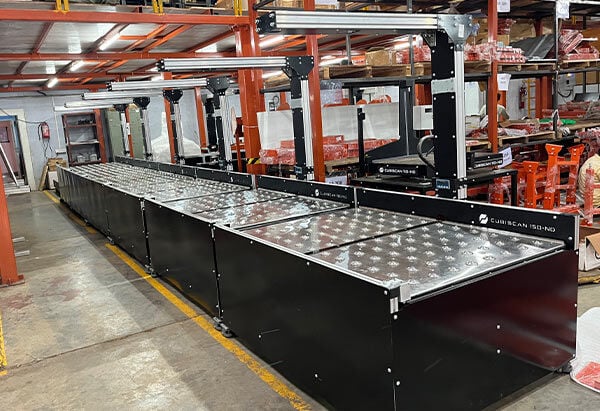The Hidden Costs of LTL Shipping and How to Avoid Them
Shipping less than truckload (LTL) can be a practical choice for many shippers, but it also comes with a host of potential inefficiencies and...
4 min read
FreightPOP : Feb 6, 2024

In the manufacturing world, efficient logistics and supply chain management are critical for keeping an edge over competitors, ensuring products are delivered on time, and satisfying customer needs. Given the complexity of global supply chains and the pressure to lower costs while improving service, the industry is increasingly leaning on manufacturing TMS (Transportation Management Systems) for strategic leverage. This piece highlights how manufacturing TMS software can be a game-changer in revolutionizing logistics operations.
Manufacturers face several logistics challenges that can impact their efficiency and profitability:
AUTOMATED CARRIER SELECTION
For manufacturers, finding the most cost-effective and reliable transportation options is key. The days of using brokers charging high margins, or individually contacting carrier after carrier trying to get the best price are over.
Automating carrier selection takes what once was a manual, time-consuming task to the peak of efficiency, ensuring not only cost savings but also reliability in delivery and service.
This automation is built on several key functionalities:
Comprehensive Rate Comparison
Service Level Analysis
Enhancing Reliability in Delivery
Predictive Analytics: By leveraging historical data and predictive analytics, a TMS can forecast potential disruptions and suggest carriers with the best track records under similar conditions, enhancing the reliability of materials delivery and finished goods shipment.
TMS platforms often have integrations with Warehouse Management Systems (WMS) and inventory management tools, providing manufacturers with a comprehensive view of their supply chain. This integration helps in aligning production schedules with inventory levels and transportation capacity, reducing the risk of stockouts or excess inventory.
Integrating a manufacturing TMS software with your ERP system automates the transfer of shipment data from purchase or sales orders directly into your TMS platform, removing the necessity for manual data entry, copy-pasting, and the risk of human error. Critical shipment information, including carrier specifics, tracking details, and more, is then seamlessly updated back into your ERP. This ensures you maintain close oversight of your shipments and deliver superior customer service to your clients.
Automating these processes helps shippers reclaim valuable hours, allowing them to concentrate on other critical aspects of your business.
Real-time tracking and visibility into the supply chain are critical for manufacturers to respond swiftly to any disruptions or changes in demand. A TMS platform provides manufacturers with tools to monitor the status of raw materials and finished goods as they move through the supply chain. This real-time tracking capability allows for:
Modern TMS solutions offer customizable dashboard views that present complex supply chain data in an accessible and actionable format. By consolidating this information in one place, manufacturers gain a comprehensive overview of their supply chain, enabling them to make informed decisions quickly.
Alerts and Notifications: Staying Ahead of the Curve
Automated alerts and notifications stand as a pivotal feature within a manufacturing TMS platform, playing an indispensable role in aiding manufacturers to maintain uninterrupted operations and high levels of productivity. This functionality ensures that key stakeholders are promptly informed about any events or changes that could potentially impact the supply chain or production timelines.
Successful TMS platform implementation in manufacturing involves finding a TMS partner that:
For manufacturers looking to enhance their logistics operations, operate at maximum shipping efficiency, and reduce costs, a manufacturing TMS software offers a powerful solution. By automating key processes, providing real-time visibility, and optimizing routes, the right tech partner can help manufacturers navigate the complexities of the modern supply chain, ensuring they stay competitive in a rapidly evolving market. As manufacturers continue to seek ways to streamline operations and cut costs, adopting a TMS strategy becomes not just an option but a necessity for success.
.png)
Shipping less than truckload (LTL) can be a practical choice for many shippers, but it also comes with a host of potential inefficiencies and...

In the Logistics business, precision is everything. From warehouses to freight handlers, companies need efficient ways to optimize space, reduce...
%20(7).png)
Logistics teams are discovering that the fastest way to reduce labor costs isn't adding more staff, it’s connecting the systems they already rely on....